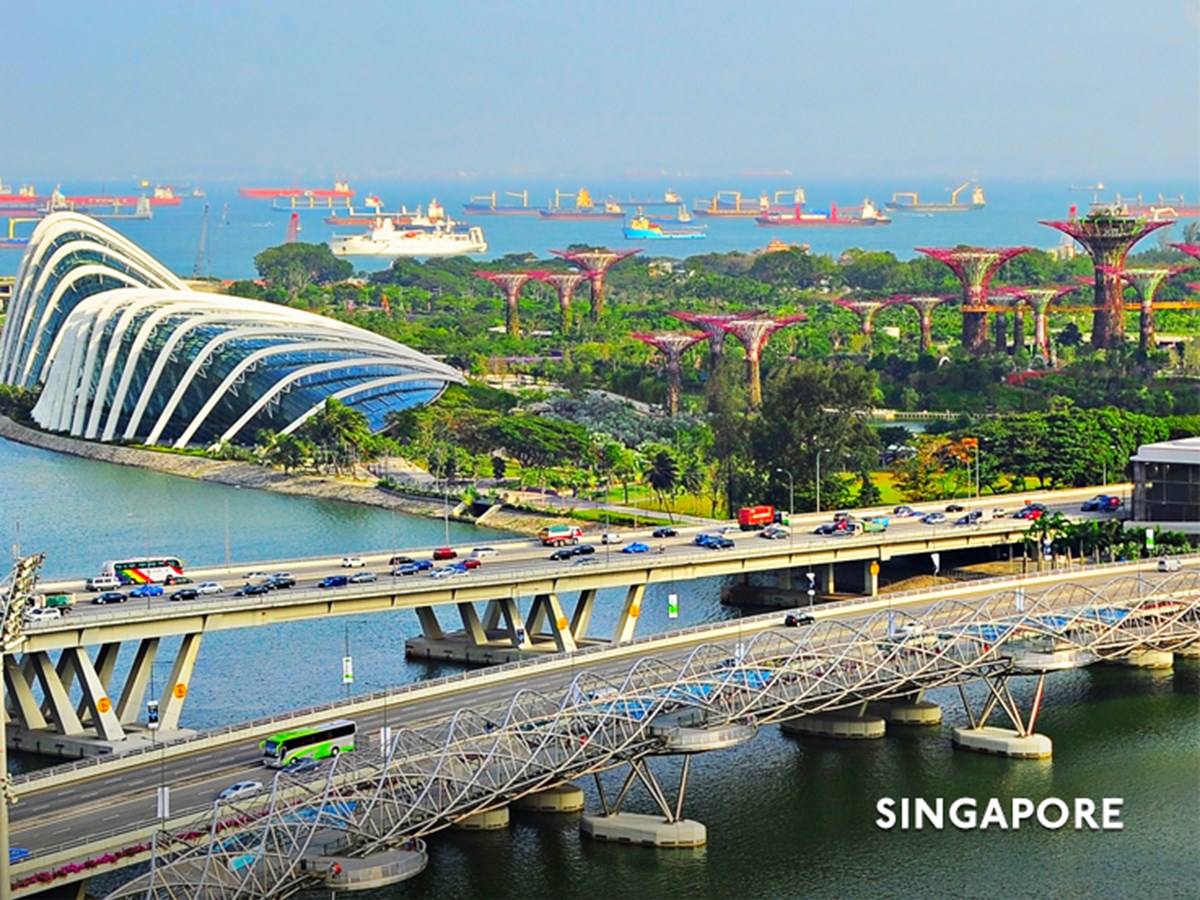
Framework for variable capital companies tailored for investment funds launched on 15 January 2020

With the Variable Capital Companies Act (“VCC Act”) having come into force, the Monetary Authority of Singapore (“MAS”) and the Accounting and Corporate Regulatory Authority (“ACRA”) announced the launch of the framework for variable capital companies (“VCCs”) on 15 January 2020. The VCC is a new corporate structure that is tailored specifically for investment funds and offers fund managers greater operational flexibility and cost savings. It will encourage more funds to be domiciled in Singapore and enhance Singapore’s value as an international fund management hub.
Overview of VCC framework
The VCC framework will complement and expand the existing suite of fund structures available in Singapore, such as companies, limited partnerships and unit trust structures.
Key features tailored for investment funds
The VCC framework contains several features that specifically address the needs of investment funds. These include:
- Flexible capital structure: VCCs are not subject to capital maintenance requirements, unlike companies, and their share capital can be varied without having to seek investors’ approval. This allows investors the flexibility to exit their investments in the fund when they wish to do so.
- Payment of dividends: VCCs can pay dividends out of capital, allowing investment funds to meet investors’ requirements for periodic returns. By contrast, companies under the Companies Act can only pay dividends out of profits.
- Segregation of assets and liabilities: To safeguard VCC shareholders’ interests and to enhance creditor protection, the assets and liabilities of each sub-fund have to be segregated and the assets of one sub-fund may not be used to discharge the liabilities of another.
- Umbrella and sub-fund structure: A VCC may be established as a standalone fund, or as an umbrella fund with multiple sub-funds. The umbrella fund with multiple sub-funds structure would allow sub-funds to share a board of directors and have common service providers, such as the fund manager, custodian and auditor, to achieve economies of scale.
- Caters to different types of funds: VCCs may be constituted as open-ended or closed-end funds, providing a suitable corporate structure for both traditional and alternative strategies.
Governance and regulatory oversight
The VCC framework contains several features to ensure appropriate governance and regulatory oversight. These include:
- Fund manager: To facilitate supervisory oversight on the use of VCCs for investment funds, a VCC must appoint a fund manager that is regulated by MAS.
- Board of directors: VCCs must have at least one Singapore-resident director who is a director or a qualified representative of the fund manager, unless the VCC comprises an authorised collective investment scheme which is offered to retail investors, in which case they must have at least three directors, at least one of whom must be independent. All directors of VCCs must be fit and proper persons.
- Financial statements: VCCs must prepare audited financial statements. Except for VCCs comprising authorised collective investment schemes, VCCs will be allowed to prepare their financial statements in accordance with Singapore accounting standards and principles, International Financial Reporting Standards (IFRS) or US Generally Accepted Accounting Principles (GAAP).
- Register of shareholders: The register of VCC shareholders need not be made public. However, it must be disclosed to public authorities for regulatory, supervisory and law enforcement purposes upon request.
- AML/CFT requirements: VCCs are subject to, and supervised for, anti-money laundering and countering the financing of terrorism (“AML/CFT”) requirements. Among other things, a VCC is required to engage a financial institution from a prescribed class (an eligible financial institution or “EFI”) for the purposes of conducting the necessary checks and performing the measures in order for the VCC to comply with stipulated parts of the MAS Notice VCC-N01 on “Prevention of Money Laundering and Countering the Financing of Terrorism - Variable Capital Companies” (“VCC AML/CFT Notice”).
Tax treatment for VCCs
The Variable Capital Companies (Miscellaneous Amendments) Act 2019 introduces amendments to the Income Tax Act, Goods and Services Tax Act and Stamp Duties Act to operationalise the tax framework for VCCs. These amendments came into force on 15 January 2020. Key features of the tax framework include:
- Income tax: Generally, a VCC will be treated as a company for corporate income tax (“CIT”) purposes. An umbrella VCC need only file a single CIT return with the Inland Revenue Authority of Singapore (“IRAS”), regardless of the number of sub-funds it has. Deductions and allowances for expenses incurred by an umbrella VCC will be applied at the sub-fund level to determine the sub-fund’s chargeable income. In addition, VCCs can enjoy tax exemptions on qualifying investment income under sections 13R and 13X of the Income Tax Act and may qualify for start-up or partial tax exemption under Singapore’s general CIT regime.
- Goods and services tax: Goods and services tax (“GST”) will apply at the sub-fund level as each sub-fund makes independent sale and purchase decisions based on its respective investment mandate. Each sub-fund that is liable for GST registration is to perform GST accounting and reporting separately.
- Stamp duty: Stamp duty is levied at the sub-fund level. This treatment is consistent with the principle that sub-funds have segregated assets and liabilities.
VCC grant scheme
To further encourage industry adoption of the VCC framework in Singapore, MAS has launched a Variable Capital Companies Grant Scheme. This grant scheme will help defray costs involved in incorporating or registering a VCC by co-funding up to 70% of eligible expenses paid to Singapore-based service providers. The grant is capped at S$150,000 for each application, with a maximum of three VCCs per fund manager. The grant scheme will be funded by the Financial Sector Development Fund (FSDF).
Responses to feedback from public consultations
On 15 January 2020, MAS issued its responses to feedback on three of the consultations it had conducted on the VCC framework in 2019.
Consultation on proposed AML/CFT Notice for VCCs
MAS sought feedback on proposed regulations relating to AML/CFT from 30 April 2019 to 30 May 2019. In its response, MAS provided clarification on the delineation of AML/CFT responsibilities between a VCC and its EFI, the appropriate AML/CFT measures for existing customers of acquiring VCCs or re-domiciled VCCs, and the definition of terms such as “customer” and “beneficial owner” in the VCC AML/CFT Notice.
Consultation on proposed framework for VCCs: Part 2
From 30 April 2019 to 30 May 2019, MAS sought feedback on proposed subsidiary legislation for VCCs, with a focus on the operational details of setting up and maintaining a VCC. In its response, MAS addressed and provided clarification on matters such as the confirmations and information required in relation to the registration of a sub-fund, the fitness and propriety principles for a director of a VCC, the procedure for the striking off and restoration of VCCs and their sub-funds and other miscellaneous operational matters.
For foreign corporate entities intending to be registered as VCCs under the VCC Act, MAS also provided guidance on the re-domiciliation scenarios that are permissible under the framework.
Consultation on proposed framework for VCCs: Part 3
From 24 July 2019 to 24 August 2019, MAS sought feedback on proposed subsidiary legislation relating to the insolvency and winding up of a VCC and its sub-funds.
In its response, MAS stated that it is reviewing the proposal to amend relevant legislation to allow an officer of a VCC to, with leave from the court, act on behalf of a VCC for the purposes of any relevant matter or proceeding to which the VCC is a party.
MAS also reiterated its intention to eventually align the insolvency and winding up regime for a VCC and its sub-funds with that of the insolvency and winding up regime for other corporate structures in Singapore under the Insolvency, Restructuring and Dissolution Act (“IRDA”), which consolidates all personal and corporate insolvency and debt restructuring laws under one statute. When the IRDA comes into force, the provisions in the Companies Act that relate to insolvency and winding up will be repealed.

